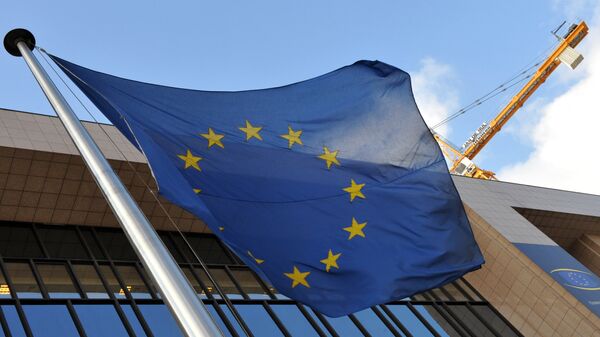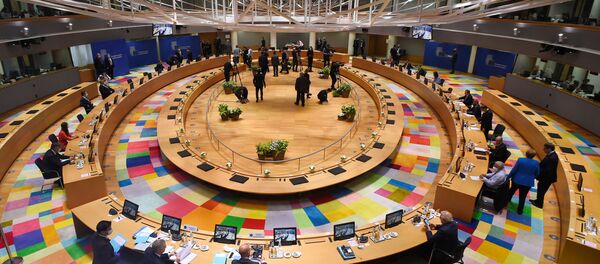The rector of the European University Cyprus, Kostas Gouliamos, has shared his views on the reasons why EU countries can't come to an agreement over the recovery plan and what the prospects are for reaching a deal on the budget.
Sputnik: There is still no agreement among EU leaders on a coronavirus recovery package after three days of meetings in Brussels. Talks have focused on a proposed €1.68 trillion package, a seven-year budget, and a coronavirus recovery fund. To what extent can European countries come to an agreement? What are the main stumbling blocks, in your view?
Kostas Gouliamos: The EU faces a major recession caused by COVID-19. It is the primary reason that EU leaders wrangled over the details of a €1.85 trillion post-pandemic recovery plan. However, the pandemic phenomenon accelerated the elusive structures of the 2007 capitalist crisis. For instance, the debt crisis - far beyond the Maastricht criteria - is not over in most countries of the EU. On top of it, member states of the EU have widely differing capacities and possibilities to tackle their problematic economies.
Nevertheless, the whole issue is strictly political. Italy and France stand for a joint European crisis policy and the issuance of euro bonds, while the Northern European countries - in alignment with the German government - are blocking all attempts to establish both a common European future and a stable EU political mode. Ultimately, the neoliberal proposals proposed by the Northern European countries and Germany would deconstruct the centrifugal forces of the EU mission in both economic and political terms.
Sputnik: Reporters in Brussels say the dispute is over five wealthier northern EU nations wanting stricter controls on spending than the southern nations hit hardest by the pandemic, including Italy and Spain, are willing to accept. Why are we seeing such division inside the bloc and can a compromise be achieved?
Kostas Gouliamos: With the levels of political disputes going on over the crisis debate, there are voices for EU nation-states and politicians to employ a more conciliatory approach. In any way, the practice of true compromise is alien to the EU nation-states debates and/or functions. Some analysts correctly have argued that “everything in the EU is a compromise of compromises”.
Furthermore, it is hard to have a real compromise in the EU since Germany in particular, and the Northern European countries in general want to embed their neoliberal economic model with the rest of the Eurozone members. Besides, for the Southern European nation-states, this political economic model enforces years of budgetary or fiscal austerity.
Sputnik: Dutch PM Rutte wants member states to have a veto on the national economic plans of the likes of Italy and Spain in order to oblige them to pursue fiscal reforms on their labour and pensions markets. To what extent does this economic stimulus package act as leverage to project the EU’s agenda in those countries opposing some issues, for example, the issue of refugees?
Kostas Gouliamos: We should take into account the fact that the veto and/or split between the European North and South countries goes further than economic indicators. It is also expanded into perceptions and stereotypes. It is related to economics versus sociocultural issues. No consensus or real compromise exists when it comes to explaining the travails of refugees and/or to Turkey’s provocations and actions, which threaten security and peace in the Mediterranean.
Furthermore, the reshaping or the reconstruction of the geopolitics of Europe offers a conceptual context to understand the tensions, turmoil, splits, differences and issues within the European Union, as well as Brussels’ interactions with the rest of the world.
Sputnik: This also raises questions about the extent of the independence countries should have despite being in the EU. In your view, how likely is it that European nations will call for more independence within the bloc, especially in terms of the budget, as we also saw accusations of EU inaction during the peak of the coronavirus pandemic in Italy? Do the existing mechanisms within the European bloc work best during moments of crisis?
In today’s fast-paced world, the pillars of creative consensus, solidarity and cooperation among the EU member states are of paramount importance. In any case, the pandemic crisis widens the EU’s North-South gap. However, despite the appearance of a stark gap and differences, Brussels needs to strike a new paradigm and an innovative apparatus based on a political equilibrium. Europe will be more complete, more secure and more democratic with a new political paradigm integrated in the EU function. In view of this, the coexistence between territorial and functional representation in the European Union should be, inter alia, compounded over dividable micro/macro policies.




